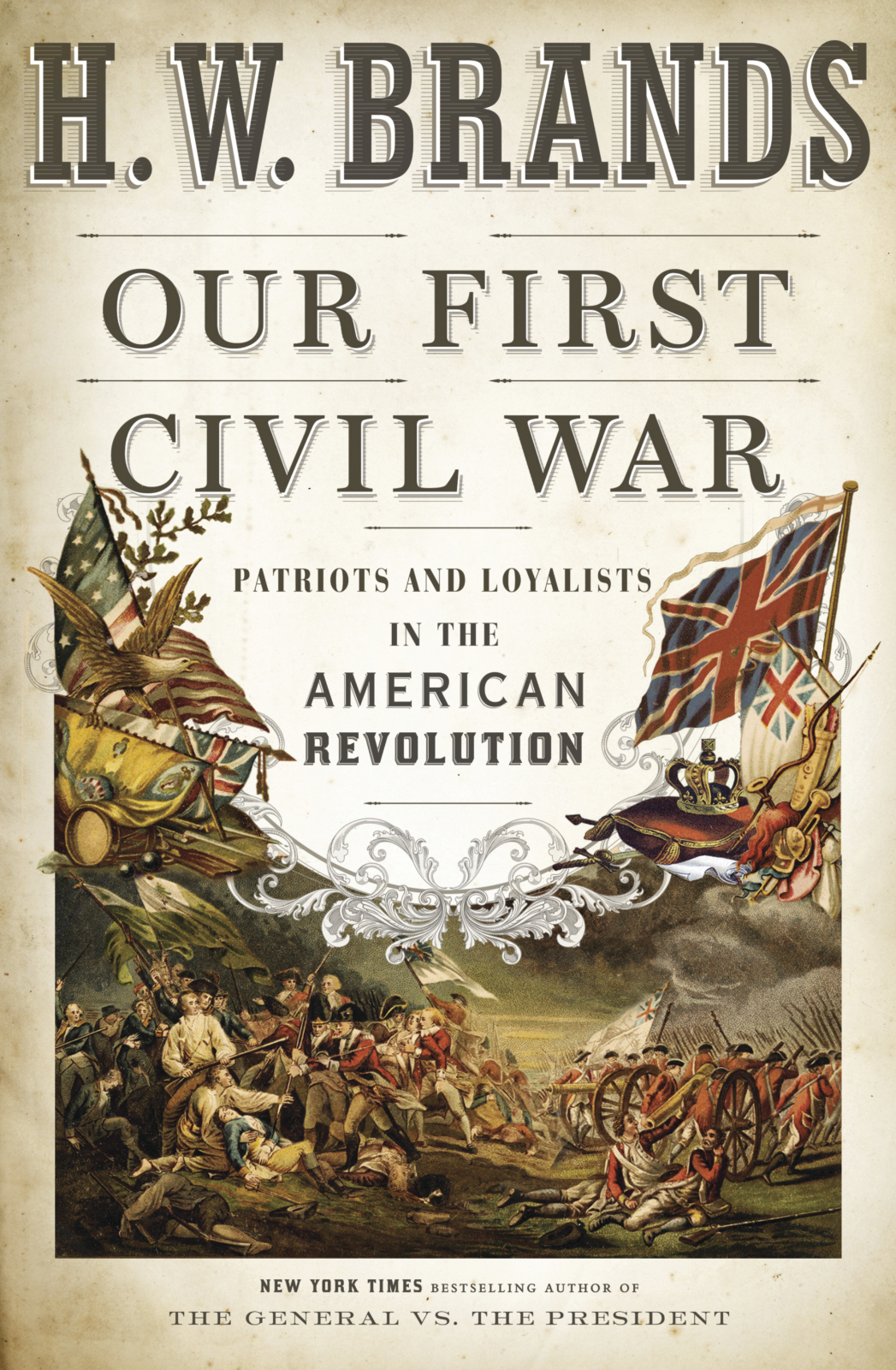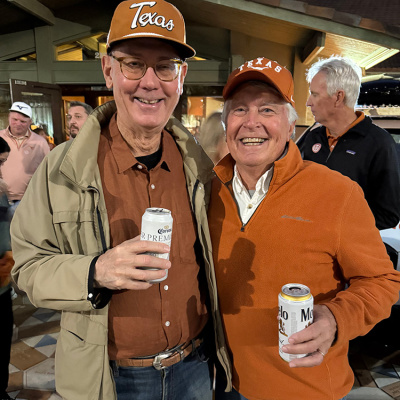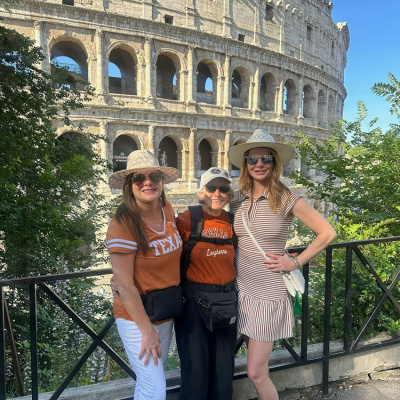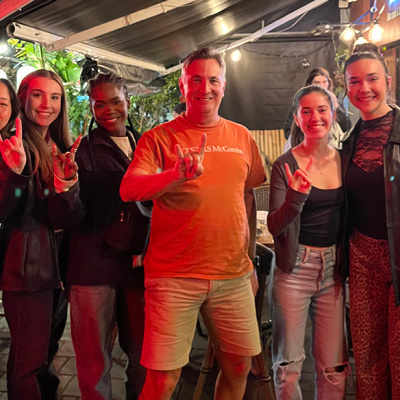UT Professor's New Book Explores Opposing Sides of the American Revolution

When do you decide to make changes within the system? And when is the system so broken that you have to abandon it—maybe even take up arms against it? Those are the questions at the heart of H. W. Brands’ new book, Our First Civil War: Patriots and Loyalists in the American Revolution.
Brands, PhD ’85, a professor at UT who holds the Jack S. Blanton Sr. Chair in History, is the bestselling author of a number of books on American history. His latest, out in November, looks at the revolutionary period, a time when colonists had to make a choice: Renounce their country and take up arms, or defend it.

People tend to look at the American Revolution as a struggle between Americans and the British, Brands says, but the reality was much more complicated. During the conflict, people within the same family or circle of friends often came down on different sides of the decision.
Brands spoke with the Alcalde about the Patriots and Loyalists and how we still face some of the questions they faced today.
How would you summarize the book?
I spend a great deal of the book probing the motivations of people. What made people like Benjamin Franklin decide to essentially declare and then commit treason against the government they were born under? And what prompted Franklin’s son, William, and other Loyalists to remain loyal? In basic histories of the American Revolution, Loyalists seem to be the traitors. They seem to be the disloyal ones, because they’re not on the side of this new republic. But in their thinking, they were the loyal ones, and it was those others that changed the rules on them.
Can you explain the motivations and feelings behind the patriots and the loyalists?
Patriots drew the conclusion that the British government no longer served the interests of the American people, and, therefore, the American people had the right to create a government of their own. The Loyalists, by contrast, said there are things that are wrong with British policy and this should be changed, but they are not so wrong and they are not so counter to the interests of the American people that this justifies a war that is going to kill a lot of people and break apart this otherwise pretty progressive and worthwhile entity, the British Empire.
Are there any parallels to be drawn between then and the present day?
I wouldn’t say that there are parallels that are directly obvious. The United States, thank heavens, is not engaged in a civil war and is not engaged in a revolt against some foreign country. But I decided to write this book because my last couple of books have been about a fundamental question: What causes people to make momentous choices in their lives? And why do people choose to do one thing rather than another? Now, as I was writing the book, I did not foresee that there was going to be the attempted takeover of the U.S. Capitol, the insurrection of January 6. But the people who took up arms to try to overturn the 2020 election, if we take them at their word, they believe that the election was stolen and they needed to defend their rights by force of arms if necessary. I’m certainly not going to equate their cause with the cause of Jefferson and Franklin and Adams and Washington by any means. But people make decisions of that nature all the time.
What do you hope that people get out of reading this book?
An appreciation that the past is more complicated than they think. To me, complications are what make history interesting. The past isn’t black and white. And to get an appreciation of that reminds us that the same thing is certainly true today. It’s not the case that either political party has a monopoly on right thinking and on honesty and on sincerity. I want people to take away an understanding that even though the world is messy and complicated, we can move ahead.
How would you describe the writing style?
I try to get at this big question through the lives and stories of several individuals. I don’t profess to write about every Patriot or every Loyalist, but I try to write about enough of each so that readers can appreciate what it is that caused John Adams to say, “I’m not going to stick with this British government anymore. I’m going to side with this new government.” And what persuaded Thomas Hutchinson, who grew up just 30 miles from Adams, to take the opposite view: “I am going to stick with this government.” I hope by getting to know these individuals, readers will have an appreciation for the complicated motivations that cause people to make big decisions.
This interview has been edited and condensed.
Credit: Courtesy University of Texas






